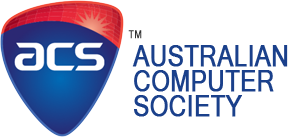Bachelor of
Information Technology (Network and Cybersecurity Systems)
Entry requirements
Key information
VIEWING DOMESTIC
VIEWING INTERNATIONAL
Entry requirements
Key information
overall
overall
*Year 1 will be completed at the City, Years 2 and 3 will be completed at Tonsley.
Note: Part-time equivalent study options are not available for international students.
Secure your future in Australia’s fast-growing cybersecurity industry
Cybersecurity is one of the fastest-growing areas in tech, with Australian businesses, governments and industries demanding skilled professionals to protect digital assets.
In this degree, you’ll gain practical expertise in computer networks, operating systems and cybersecurity systems. Hands-on projects, labs and industry-informed teaching prepare you to design, secure and manage IT infrastructure.
You’ll graduate ready to take on critical roles in defending against cybercrime and safeguarding the systems that keep our digital world running.
No.1 in SA
in Computing & Information Systems for full-time employment, learner engagement, learning resources, overall educational experience and student support
The Good Universities Guide 2025 (undergraduate), public SA-founded universities only
Ranked in the top 2%
of the universities in the world
The Good Universities Guide 2024 (undergraduate)
Five stars in Computing & Information Systems
for learner engagement and student support
The Good Universities Guide 2025 (undergraduate)
Turn your IT skills into in-demand cybersecurity expertise
Cybersecurity and network specialists are essential across government, defence, banking and tech. Graduate ready to detect threats, protect data and keep systems running.
Salary
$130K
typical salary in Australia
Job opportunities
17,000
more cybersecurity specialists needed in Australia by 2026
Cybersecurity Analyst
Cybersecurity Analysts are frontline defenders against digital threats, monitoring networks for breaches and responding to incidents. In Australia, they’re employed by government agencies, defence organisations, banks, healthcare providers and large corporations - all of which are under constant cyber threat.
Your work might include investigating suspicious activity, managing firewalls, testing vulnerabilities, and creating security policies. Flinders prepares you with practical labs in operating systems, digital forensics, enterprise security, and network defence - giving you the confidence to protect sensitive systems.
Network Engineer
Network Engineers design, build and maintain the digital highways that keep organisations connected. They configure routers, manage data flows, and troubleshoot connectivity issues to ensure secure, reliable operations. With businesses moving into the cloud and hybrid work models, demand for skilled network professionals is only increasing.
In this role, you might set up enterprise networks, support secure cloud migration, or optimise performance for thousands of users. Flinders equips you with hands-on training in routing, switching, cloud computing and cybersecurity - essential to thrive in modern IT teams.
Salary
$117K
typical salary in Australia
Sources: yourcareer.gov.au, 2025 | Seek Australia, 2024
Penetration tester
Ethically hack systems to find weaknesses, assess potential risks and implement techniques, strategies and protocols to make all of our data safer.
Forensic Computer Analyst
Recover, analyse and present digital evidence for investigations into cybercrime, fraud, and breaches. You’ll work closely with law enforcement and corporate security teams.
Cloud Engineer
Cloud Engineers build and maintain cloud-based systems, helping organisations migrate data securely and cost-effectively. You’ll work with platforms like AWS and Azure, applying both networking and cybersecurity expertise.
Systems Administrator
Administrators keep servers, operating systems and networks running smoothly. You’ll monitor performance, manage updates, and support cybersecurity measures. This role is vital for organisations that depend on 24/7 IT operations.
What will you study to start your career in networks and cybersecurity?
This degree builds your IT expertise from the ground up. In first year you’ll learn programming, databases, networks and cybersecurity foundations, then move into advanced topics like algorithms, cloud computing, digital forensics and enterprise security. Along the way, you’ll develop practical, career-ready skills through labs, projects and a 12-week industry placement.
- Year 1
- Year 2
- Year 3
In your first year, you'll study the following core topics:
Year 1 - Core topics
Your first year might include the following topics. For exact topic information, visit the course Handbook.
- Fundamentals of Artificial Intelligence
- Fundamentals of Software Engineering
- Programming Fundamentals
- Database Modelling and Information Management
- Introduction to Forensic Practice
- Networks and Cybersecurity
- UX Fundamentals
- Professional Skills
In your second year, you'll continue to build on the foundations you laid in the your first year.
Year 2 - Core topics
Your second year might include the following topics. For exact topic information, visit the course Handbook.
- Full-Stack Web Development
- Data Structures and Algorithms
- Systems Software
- Cybersecurity
- ICT Management and Professional Standards
- Networking Fundamentals
- Digital Forensics
- Computer Forensics
In your third year, you'll finish your studies and you'll also get hands-on experience with a 12-week placement opportunity
Year 3 - Core topics
Your third year might include the following topics. For exact topic information, visit the course Handbook.
- Cloud and Distributed Computing
- Advanced Algorithms and Programming
- Information Security
- Advanced Enterprise Security
- Workplace Preparation
- Routing and Switching
- Internet and Network Forensics
- 12-week Industry-based Practicum


Accreditation or Professional Recognition
Our Bachelor of Information Technology degrees are accredited by the Australian Computer Society at the professional level. Professional ICT courses accredited by the Australian Computer Society are recognised internationally under the Seoul Accord. Graduates meet the academic requirements for attaining chartered status as ICT professionals.
As an authorised Cisco Academy, Flinders parnership with Cisco allows you to undertake courses that contribute towards Cisco certification as a Cisco Certified Entry Networking Technican or Cisco Certified Networking Associate.
Boost your knowledge with an Honours in Networking and Cybersecurity.
SATAC: 12345
Choosing the Honours pathway in Networks and Cybersecurity allows you to deepen your knowledge of information technology while developing advanced skills in research, problem-solving, and project design by undergoing an honours research thesis. You’ll develop strong analytical, coding and problem-solving skills, preparing you for careers in research, technology, finance, and beyond.
With flexible study options and pathways into postgraduate study, this degree sets you up to lead innovation in a data-driven world.
Choosing the Honours pathway in Networks and Cybersecurity allows you to deepen your knowledge of information technology while developing advanced skills in research, problem-solving, and project design by undergoing an honours research thesis. You’ll develop strong analytical, coding and problem-solving skills, preparing you for careers in research, technology, finance, and beyond.
With flexible study options and pathways into postgraduate study, this degree sets you up to lead innovation in a data-driven world.
No.1 in SA
in Computing & Information Systems for full-time employment, learner engagement, learning resources, overall educational experience and student support
The Good Universities Guide 2025 (undergraduate), public SA-founded universities only
No.6 in Australia
in Computing & Information Systems for learner engagement
The Good Universities Guide 2025 (undergraduate)
Five stars in
Computing & Information Systems
for learner engagement and student support
The Good Universities Guide 2025 (undergraduate)
Discover South Australia.
Where world-class education meets laid-back coastal living. With pristine beaches, acclaimed wineries, and vibrant festivals at your doorstep, South Australia offers an unmatched student experience.
Photo credit: SATC
Get inspired.
Discover more about Flinders University’s Bachelor of Information Technology (Networks and Cybersecurity Systems).
Tour Flinders' Tonsley Campus with Mike
Tour of our state-of-the-art Tonsley campus, an innovation hub home to the university's IT, Engineering, Mathematics, AI, and more!
“My learning experience at Flinders as been great...The key areas of my studies which excite me are the continuous hands on learning experience which are delivered by lecturers. This allows us to be doing activities in class which we would do in real life work place settings, enabling us to be ready for work life once we graduate.”

Lalvith Lal
Bachelor of Information Technology (Network and Cybersecurity Systems)
“Flinders has highly contributed to my professional and academic growth...I got the chance to do a 20 week IT placement during my studies at Flinders and this has immensely helped in building my skills required for a job and is great for my CV.”

Gurleen Kaur
Bachelor of Information Technology (Network and Cybersecurity Systems)
“Flinders was the right choice for me because the quality of their degree programs and their industry level standards....All the lectures are highly trained for teaching and are industry level experts.”

Gayantha Kasun Withanage
Master Information Technology (Network and Cybersecurity)
Need support?
International Student Services (ISS) is the first point of contact for international student support. The university also offers everything from cultural, health, and wellbeing services, to academic support.
Campus tours
Take a virtual tour of our campuses, guided by your fellow international students.
FUSA
Flinders University Student Association (FUSA) is the heart of the Flinders Experience. FUSA is where you'll find out about events, club memberships, and extracurricular activities.
Accommodation.
Adelaide has many accommodation options for international students. You can choose to live on campus, at our city accommodation provider The Switch, or in rental accommodation.
Flinders offers a vibrant, fun, supportive uni experience you’ll remember for a lifetime.
Need support?
From cultural, health and wellbeing services, to study and financial support, enrolment advice and more, we’re here to help.
Student clubs
Flinders University Student Association (FUSA) is the heart of the Flinders Experience. FUSA is where you’ll find out about events, club memberships and extracurricular activities.
Campus facilities
Flinders’ campuses are hubs of activity, with retail and food outlets, library spaces, study and chill spaces and more.
Learn from the experts.
Our incredible teaching and professional staff are experts in their fields and well-connected to the industry.

Associate Professor
Elena Sitnikova
A Certified Secure Software Lifecycle Professional, Elena leads cutting-edge research in Critical Infrastructure protection, focusing on intrusion detection for Supervisory Control and Data Acquisition systems cybersecurity and the Industrial Internet of Things.
With cyber-attacks increasing globally, she is exploring system antifragility and using artificial intelligence to analyse abnormal data that may affect critical cyber-physical systems.

Senior Lecturer
Dr Saeed Rehman
Saeed Rehman is a Senior Lecturer in Cybersecurity and Networking at Flinders University. Before joining Flinders, he held senior academic roles in New Zealand. His research centres on communication security in wireless systems, with a focus on mitigating physical layer impairments in WiFi, IoT, cellular and satellite networks.
In recent years, Dr Rehman has advanced the use of radiometric fingerprinting for device identification and security, introducing a novel technique that has proven both feasible in real-world environments and resilient against impersonation attacks.

Associate Professor Alireza Jolfaei
Associate Professor Alireza Jolfaei is a cybersecurity leader shaping the future of digital safety at Flinders University. As an Associate Professor and Senior IEEE Member, his groundbreaking research on Cyber-Physical Systems Security tackles challenges in critical infrastructure protection.
An award-winning scholar, Alireza inspires innovation and resilience in the face of evolving cyber threats worldwide.
Connect with industry.
Get career-ready, you will benefit from our strong connections to industry leaders that will provide you with real-world experience through our Work Integrated Learning (WIL) placements.








Gain real world experience.
With a huge range of 12 to 20-week industry placement opportunities in South Australia, Australia and overseas, Work Integrated Learning (WIL) can be in the form of internships, field education, vocational and professional practice, including projects with industry and community organisations.
Find out what it's like to study computing and information technology at Flinders. Hear from our students about applying your learning in a practical way at the Tonsley and how your studies prepare you for a career.
How to apply.
We know not everyone begins uni the same way, so we offer a variety of pathways into Flinders.
Use the dropdown to tell us a bit about you.
Alternative pathways
UniTEST
If you’re in Year 12, taking the free uniTEST can help boost your chances of getting into Flinders.
Research Project B Pathway
Strong results in your Research Project B subject along with your Year 12 results can be considered for entry.
Year 12 Grades Entry
By using three of your best Year 12 grades, you can also gain a place in your course of choice.
School Recommendation Program
Your school’s recommendation about your academic performance may be considered as part of your admission.
If you started uni but didn't finish, you may be able to gain entry into Flinders with a higher education transfer.
Higher education transfer
If you’re studying at another university, you may be able to transfer to Flinders based on your Yr 12 results, current GPA or other factors.
If you've had TAFE or VET training, you may be able to continue your study with Flinders.
TAFElink
Even if you didn’t finish high school (Year 12), you may be able to study at Flinders through your TAFE/VET qualification.
Dual offer pathways
You may be able to complete a TAFE SA course and have guaranteed entry into Flinders.
Credit transfer
The TAFE/VET stud you’ve already done may be able to be used as credit towards a Flinders’ course.
No ATAR? No worries. If you've got work or life experience, there are pathways into Flinders.
Flinders Foundation Studies
The Foundation Studies Program is free and guarantees entry to a range of degrees.
Skills for Tertiary Admissions Test (STAT)
The STAT is a 2-hour multiple choice test that assesses your abilities.
Year 12 qualifications
If you completed Year 12 more than two years ago you can still use your results to apply.
Concerned about your ATAR? If it doesn't meet the course requirement, or if you don't receive one, we offer alternative pathways to admission. Contact us to discuss your options—we're here to help.
- Entry requirements
- Application options
If you don’t meet our English language entry requirements and need to improve your English language proficiency, you can do so through Flinders University Academy – or our approved English Language Instruction Course for Overseas Students (ELICOS) providers.
This means that you can attend the required English language tuition at approved ELICOS providers and gain direct entry into university without an IELTS or TOEFL test.
If you don’t meet our academic entry requirements, you can still gain entry to Flinders University through Flinders University Academy. With a range of diplomas, foundation and English language courses, students can find a direct pathway into the destination degree of their choice.
How to apply
Select your course.
Check entry requirements.
Check your eligibility for credit.
Obtain certified documents.
Submit your application and documents.
Application options.
Apply online
Follow up our step-by-step guide to help you with your application to study at Flinders.
Find an agent
Our registered education agents around the world understand the university system and will guide you through the application process.
Contact us
Get in touch with our team to discuss your preferences, career options, pathways, and course and entry requirements. We are here to ensure you have everything you need to choose the right degree for you.
Don't meet academic requirements? Don't worry. We'll help you get there.
Preparatory courses
If you lack required English proficiency, improve through Flinders University Academy or approved ELICOS providers for direct university entry without IELTS/TOEFL tests.
Flinders University Academy
If you do not meet entry requirements for your desired degree, Flinders University Academy will provide you with a direct pathway into the destination degree of your choice.
Frequently asked questions.
Over the years, many questions have been asked by students before. For the quickest answers view our frequently asked questions or browse the full list @ Ask Flinders.
No. Programming is taught from scratch in first year. If you’ve never coded before, you’ll be supported as you learn.
Plenty - you’ll work in specialist computer labs with real networking hardware, firewalls, and forensic software. Your final year includes a 12-week industry placement.
Yes - ethically. You’ll study penetration testing and simulated cyberattacks so you can understand how hackers think, and how to defend against them.
Yes. While computer science focuses on theory and programming, this degree is tailored to cybersecurity, networking, and digital forensics - areas employers urgently need.
Absolutely. Many graduates move into roles with defence contractors, government agencies, and law enforcement, alongside opportunities in banks, healthcare, and the private sector.
You’ll use logical thinking and problem-solving more than advanced maths. The degree includes algorithm and data structure topics, but support is there if you need it.
It’s the process of collecting and analysing digital evidence after a cyber incident. You’ll learn how to investigate data breaches, fraud, and cybercrime.
Yes. In your third year you’ll complete a 12-week industry-based practicum, applying your skills on real projects with industry partners.
Yes. Through electives and your practicum, you can focus on areas like cloud security, advanced enterprise systems, or forensic analysis.
Definitely. Cybersecurity and networking are global fields — your skills will be transferable to jobs in Australia and around the world.
- Applications are completed via SATAC
- Visit: satac.edu.au
The table below shows ATAR and Selection Rank data for students offered a place wholly or partly on the basis of ATAR commencing in Semester 1, 2025. It is limited to applicants that have recently completed secondary education (within the last two years). Data may reflect multiple courses available within a suite of courses.
Notes:
<5 – less than 5 ATAR based offers made
N/A – This course uses additional selection criteria and therefore Selection Rank is not published
| ATAR-based offers only across all offer rounds | ATAR - Excluding adjustment factors | Selection Rank - ATAR plus any adjustment factors |
|---|---|---|
| Highest rank to receive an offer | 95.20 | 99.95 |
| Median rank to receive an offer | 76.17 | 80.42 |
| Lowest rank to receive an offer | 57.75 | 61.00 |
The table below gives an indication of the likely peer cohort for new students in this course. It provides data on students who commenced study in this course in Semester 1, 2025 including those admitted through all offer rounds and international students studying in Australia. Applicant background groupings are based on educational background, not basis of admission. Data may reflect multiple courses available within a suite of courses.
Notes:
<5 – the number of students is less than 5
N/P – Not published: the number is hidden to prevent calculation of numbers in cells with less than 5 students
| Applicant background (Semester 1, 2025) | Number of students | Percentage of all students |
|---|---|---|
| Higher education study (includes a bridging or enabling course) | 44 | 37% |
| Vocational education and training (VET) study | 5 | 4% |
| Work and life experience | <5 | <5 |
| Recent secondary education - Admitted solely on the basis of ATAR (regardless of whether this includes the consideration of adjustment factors such as equity or subject bonus points) | 28 | 24% |
| Recent secondary education - Admitted where both ATAR and additional criteria were considered (e.g. portfolio, audition, extra test) | <5 | <5 |
| Recent secondary education - Admitted on the basis of other criteria only and ATAR was not a factor (e.g. special consideration pathways) | 17 | 14% |
| International Students | 18 | 15% |
| All students | 118 | 100% |
Frequently asked questions.
Get in touch with us to discuss your preferences, career options, pathways and course and entry requirements. We are here to ensure you have everything you need to choose the right degree for you.
The type of documents you will need for your international application depends on what course you are applying for and which country you are a citizen of. Course requirements are stated on each course webpage. Examples of documentation you might expect to provide for your international application include a copy of personal identification, academic transcripts or a resume.
Once you have received your Confirmation of Enrolment (CoE) letter from Flinders University, you should apply for your visa as soon as possible as visa processing times can vary. You will receive your CoE letter after you have applied to study at Flinders, accepted your offer and paid the semester tuition fee.
No. Part-time study is currently not available for international students due to visa conditions.
No. Online study is currently not available for international students due to visa conditions.
If you don’t meet our English language or academic entry requirements, you can still gain entry to Flinders University through our on-campus pathway provider Flinders University Academy. Alternatively, you can improve your English language proficiency through our approved English Language Instruction Course for Overseas Students (ELICOS) providers.
You can apply to study as an international student directly through Flinders University or an authorised agent in your country.
If you are from one of the countries listed, you are required to apply via an education agent. If you reside onshore in Australia, you will not require an agent even if you are from the countries listed above.
Yes. As a student visa (subclass 500) holder, you and your dependents (family members) can work up to 48 hours a fortnight when your course of study is in session. If you have started a master degree by research or doctoral degree, this rule does not apply to you and working hours are not restricted.
Our dedicated International Student Services (ISS) team provide a range of programs supporting your enrolment, study and social life, as well as a referral service to facilities on campus and within the local community.
![]()
Sturt Rd, Bedford Park
South Australia 5042
South Australia | Northern Territory
Global | Online
CRICOS Provider: 00114A TEQSA Provider ID: PRV12097 TEQSA category: Australian University








